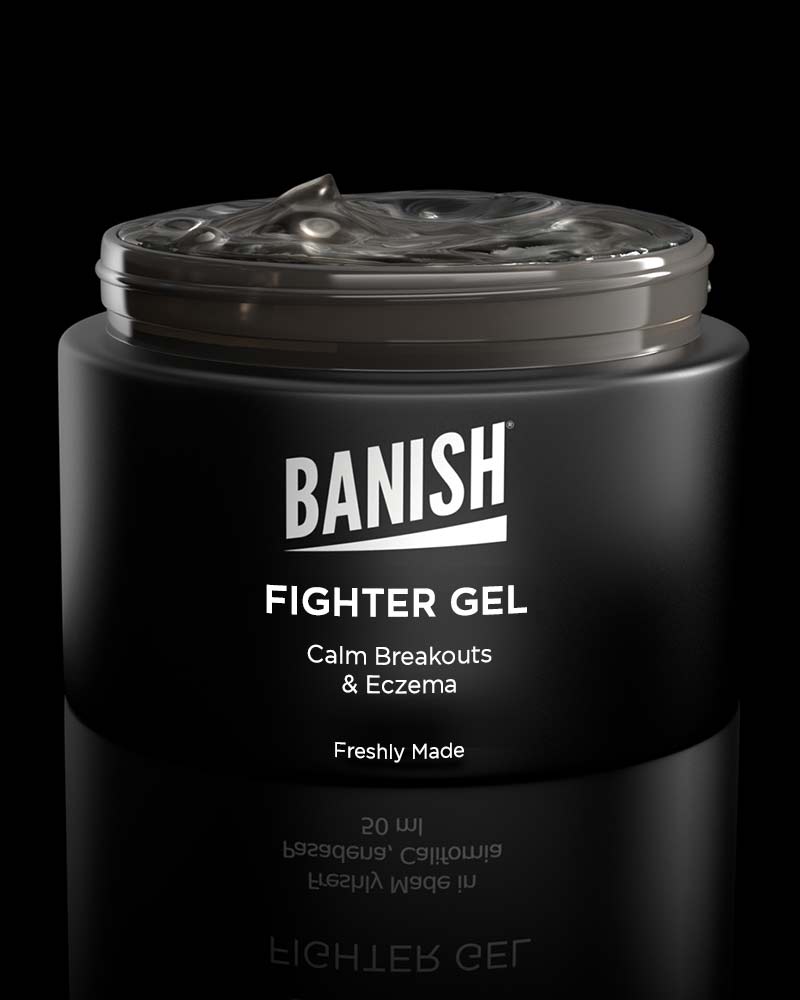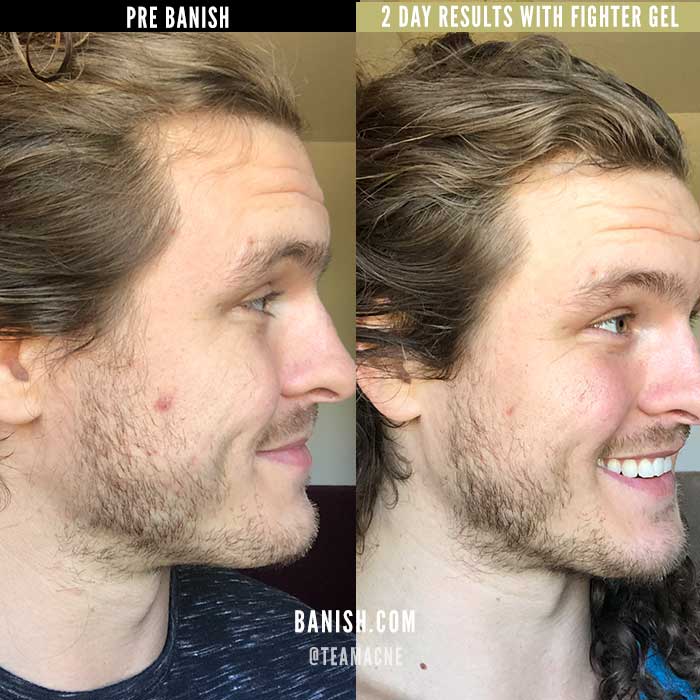
Is Coconut Oil Safe for Acne-Prone Skin? What the Science Says
Coconut oil has gained immense popularity in the beauty and wellness world, often lauded for its natural moisturizing properties and purported benefits for skin. Many individuals, especially those seeking "natural" solutions for their skincare concerns, have turned to coconut oil as a moisturizer or even as an acne treatment. However, if you have acne-prone skin, the experience of using coconut oil might be far from the glowing results you hoped for. This article delves into the scientific consensus surrounding coconut oil and its suitability for acne-prone skin, helping you make informed decisions for your complexion.
Understanding Comedogenicity: Why Some Oils Clog Pores
To understand why coconut oil might be problematic for acne-prone skin, it's crucial to grasp the concept of "comedogenicity." A substance is classified as comedogenic if it has a tendency to clog pores, which can lead to the formation of blackheads, whiteheads, and ultimately, acne breakouts [1].
The comedogenic scale is a rating system, typically from 0 to 5, that indicates an ingredient's likelihood of clogging pores:
- 0: Non-comedogenic (very unlikely to clog pores)
- 1-2: Slightly comedogenic (low likelihood of clogging pores, generally safe for most skin types)
- 3-4: Moderately comedogenic (higher likelihood of clogging pores)
- 5: Highly comedogenic (very likely to clog pores)
Numerous sources, including dermatological experts and skincare resources, consistently rate coconut oil as highly comedogenic, typically scoring a 4 out of 5 on this scale [2, 3, 4]. This high rating indicates a significant potential for coconut oil to obstruct pores, particularly for individuals with oily or acne-prone skin.
The Science Behind Coconut Oil and Breakouts
Coconut oil's comedogenic nature is primarily attributed to its fatty acid composition. It is rich in saturated fatty acids, especially lauric acid and oleic acid [5]. While lauric acid possesses antimicrobial properties that can fight P. acnes bacteria (a key contributor to acne) [6], its high concentration in coconut oil, combined with other fatty acids, can be occlusive on the skin. This occlusive property creates a barrier that can trap dead skin cells and sebum within the pores, leading to blockages and subsequent breakouts.
For individuals with naturally oily skin, who already produce excess sebum, applying a highly comedogenic oil like coconut oil can exacerbate the problem. The added oil can overwhelm the skin's natural ability to regulate oil flow, leading to increased pore congestion and a higher incidence of pimples. This explains why some users experience a noticeable increase in breakouts in their problem areas after consistent use, while non-acne-prone areas might appear smoother due to the moisturizing effect.
When Coconut Oil Might Seem Beneficial (and Why It's Misleading for Acne)
Despite its high comedogenic rating, some people report positive experiences with coconut oil, especially those with dry or normal skin. This is because coconut oil is an effective emollient, meaning it can help to soften and smooth the skin by filling in gaps between skin cells, reducing water loss, and providing a protective barrier [7]. For individuals without a predisposition to acne, these moisturizing benefits can lead to a healthier-looking complexion.
Furthermore, as mentioned, lauric acid, a major component of coconut oil, has demonstrated antibacterial and anti-inflammatory properties in laboratory settings [6]. This has led to the misconception that coconut oil is inherently good for acne. However, the overall composition of coconut oil, with its pore-clogging potential, often outweighs the localized benefits of lauric acid when applied topically to acne-prone skin. The very mechanism that allows lauric acid to interact with skin (penetration) also allows the comedogenic fatty acids to clog pores.
Safer Oil Alternatives for Acne-Prone Skin
If your experience with coconut oil mirrors the breakout scenario, don't despair! The world of skincare oils is vast, and many beneficial, non-comedogenic options exist for acne-prone skin. These oils can provide hydration, anti-inflammatory benefits, and even help regulate sebum production without clogging pores. Some popular choices include:
- Jojoba Oil (Comedogenic Rating: 2): Mimics the skin's natural sebum, making it an excellent moisturizer that can help balance oil production.
- Rosehip Oil (Comedogenic Rating: 1): Rich in vitamins and essential fatty acids, known for its regenerative properties and ability to improve skin tone and texture.
- Grapeseed Oil (Comedogenic Rating: 1): A lightweight oil with antioxidant properties, suitable for oily and acne-prone skin.
- Squalane Oil (Comedogenic Rating: 1): A highly stable emollient that is non-irritating and excellent for hydration.
- Squalane Oil (Comedogenic Rating: 1): A highly stable emollient that is non-irritating and excellent for hydration.
Conclusion: Is Coconut Oil Safe for Acne? The Verdict
While coconut oil offers moisturizing benefits and contains some beneficial compounds, its high comedogenic rating makes it a risky choice for individuals with acne-prone or oily skin. The scientific evidence strongly suggests that it can clog pores and exacerbate breakouts. For those seeking natural oils to support their acne management routine, opting for non-comedogenic alternatives is a much safer and more effective approach. Always patch-test new products and consult with a dermatologist if you have persistent acne concerns.

My Experience
Sadly, having clogged pores from using coconut oil is exactly what happened to me and I had to stop using this oil on my face.
However, not all cases are the same as my friend didn’t get any breakouts after using it and her skin was glowier than ever.
Of course, I have moderate to severe acne and she only has an occasional pimple here and there, so I figured that coconut oil didn’t go well with my skin that was naturally oily.

If your experience was like mine, you may feel like giving up on putting oils on your skin, but please don’t! There are many beneficial oils out there for us acne prone girls, coconut oil is just not one of them. Here are a few oil suggestions (non-comedogenic) that your skin might like and their main use as acne skin solution:
Other More Acne Friendly Oil Alternatives:
Tamanu oil:

Amazing for acne scars, it is known for getting rid of the worst scars.
(Comedogenic Score of 2)
Argan oil:

(Comedogenic Score of 0)
Great for preventing breakouts and for the healing of acne scars due to its high vitamin E content.
Castor oil:

Good for very oily skin as it dries it out and detoxifies the skin.
(Comedogenic Score of 1)
References
[1] Curology. (2023, September 27). Comedogenic scale for oils: What to know. https://curology.com/blog/comedogenic-scale-for-oils-boosting-skin-health-with-the-right-choices/
[2] Frilliance. Coconut Oil = Comedogenic?. https://frilliance.com/blogs/good-to-know/coconut-oil-comedogenic
[3] CleanO2. (2023, April 17). Coconut Oil is Everywhere, But is it Bad for Your Skin?. https://cleano2.ca/blogs/journal/is-coconut-oil-bad-for-your-skin
[4] DrOracle.ai. (2025, April 14). What are the adverse effects of using coconut oil on the skin?. https://www.droracle.ai/articles/73513/downsides-to-using-coconut-oil-on-skin
[5] CleanO2. (2023, April 17). Coconut Oil is Everywhere, But is it Bad for Your Skin?. https://cleano2.ca/blogs/journal/is-coconut-oil-bad-for-your-skin?srsltid=AfmBOopvdRMDOTjf94Ch1XBpwakHFh16EKa533IfyvwaF-c-IVhgYug6
[6] Nakatsuji, T., Kao, M. C., Fang, J. Y., Zouboulis, C. C., et al. (2009). Antimicrobial property of lauric acid against Propionibacterium acnes: its therapeutic potential for inflammatory acne vulgaris. Journal of Investigative Dermatology, 129(5), 1278–1287. https://www.sciencedirect.com/science/article/pii/S0022202X15340859













Leave a comment
All comments are moderated before being published.
This site is protected by hCaptcha and the hCaptcha Privacy Policy and Terms of Service apply.